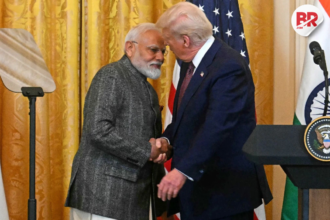
Harvard Letter Regret: Trump Administration’s Unexpected Reversal
The Trump administration’s relationship with academic institutions was always a subject of scrutiny, but a recent report by The New York Times has shed light on an unexpected twist. The administration, known for its assertive policies, expressed regret over a letter it sent to Harvard University, demanding changes to certain policies.
This rare admission has sparked debate on the role of government in higher education and whether such actions overstep the boundaries of federal authority.

A Letter That Sparked Controversy
During its tenure, the Trump administration sent a letter to Harvard, urging the university to alter specific policies. While the full details of the letter remain undisclosed, it was clear that the government sought to influence academic practices.
The letter was part of a broader effort by the administration to assert its views on academic institutions. However, the response from Harvard—and the public reaction—led to a surprising turn of events: the Trump administration later admitted that it had misjudged the situation.
The Regret: What Happened?
According to The New York Times report, the Trump administration’s regret seemed to stem from the backlash that followed the letter’s release.
The administration’s aggressive stance towards the prestigious university was seen as an overreach by many, leading to internal reconsiderations. The government’s realization that it had overstepped suggests a rare moment of self-reflection, which stands in contrast to the often combative tone it maintained throughout its time in office.
Also Read: Trump vs Harvard: Why the US Government Wants to Stop Foreign Student Admissions at the University
Why Does This Matter?
The incident raises important questions about the relationship between government and universities. Harvard, one of the world’s most prestigious universities, prides itself on its autonomy and academic freedom. The Trump administration’s attempt to influence its policies highlighted the tension between federal oversight and institutional independence.
This situation serves as a reminder of the delicate balance between government influence and the need to protect the independence of academic institutions.
For the average person, this might seem like an inside-baseball issue. However, it underscores the broader challenge universities face when external forces—whether from the government, corporations, or other powerful entities—attempt to influence their policies.
Universities play a crucial role in shaping public discourse and advancing knowledge, so maintaining their freedom to operate without undue influence is vital.
Also Read: Trump vs. Harvard: Is Higher Education Still About Thinking—or Just Training for Jobs?
The Bigger Picture: Academic Freedom at Stake
The broader implications of this incident go beyond Harvard. If the Trump administration’s letter is seen as an overreach, it could influence how future administrations engage with academic institutions.
On the other hand, if the administration’s regret is viewed as a form of correction, it may set a precedent for a more measured approach in the future.
Other universities are likely watching this situation closely. While Harvard has long been a target of political scrutiny, smaller universities might also be concerned about government pressure to change policies. As the story develops, the implications for the academic world—and the government’s role within it—will continue to unfold.
What Does This Mean for the Future?
The Trump administration’s regret over its letter to Harvard highlights a complex issue: the balance between academic freedom and government influence.
As universities continue to navigate this challenging landscape, it’s important to recognize the need for autonomy in the pursuit of knowledge. The situation at Harvard may serve as a turning point, signaling a shift toward more thoughtful, measured interactions between the government and academic institutions.
A Lesson in Government and Academia
In conclusion, the Trump administration’s regret over its letter to Harvard provides a rare glimpse into the complexities of government-university relations. While the specifics of the letter remain unclear, the incident underscores the need for careful consideration when governments seek to influence academic institutions.
As this story develops, it will undoubtedly spark further discussions on the appropriate boundaries between government power and academic freedom.
Also Read: Trump vs. Harvard: The Battle Over Tax-Exempt Status That Could Change U.S. Education












